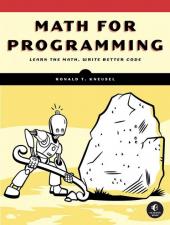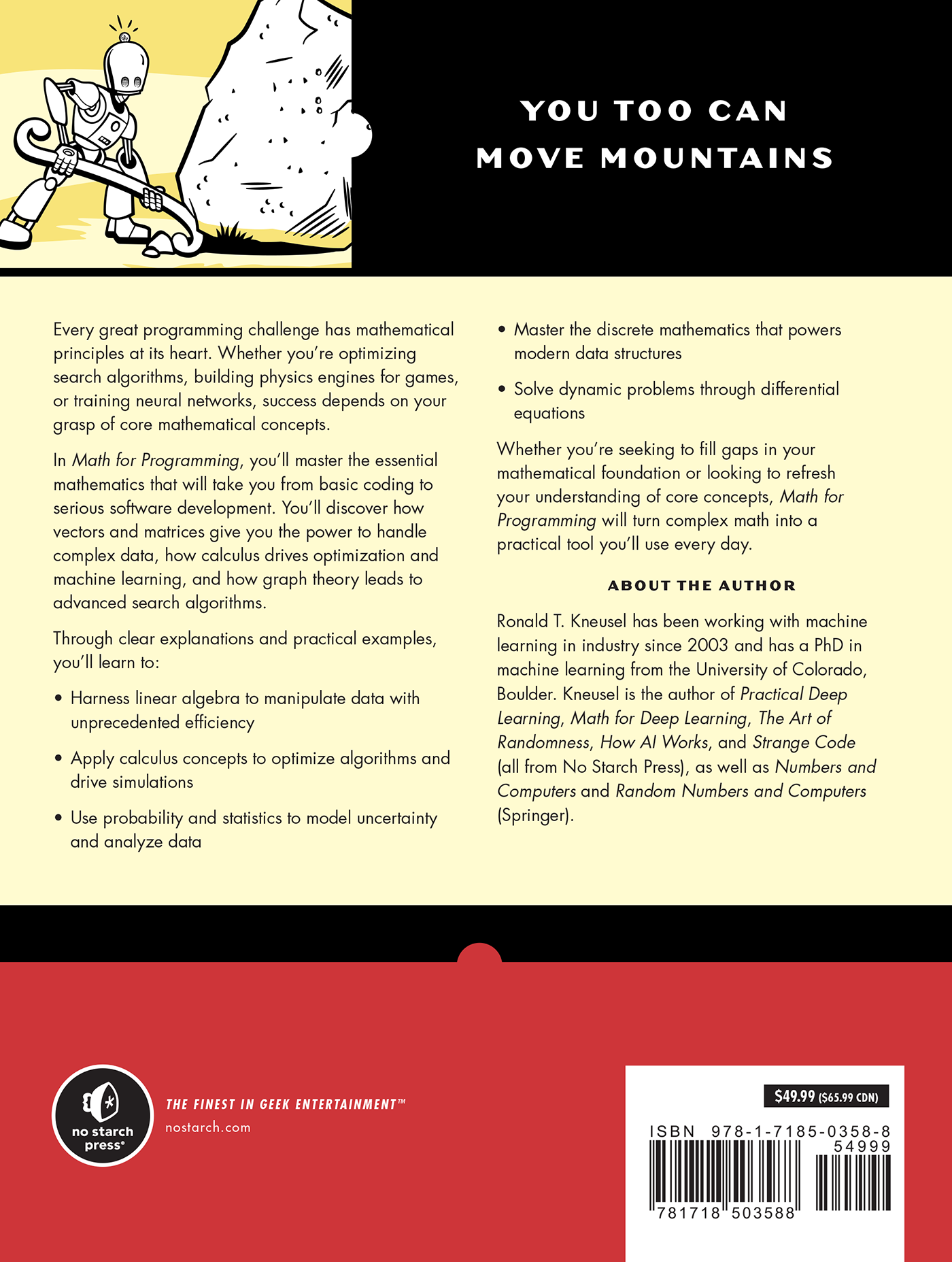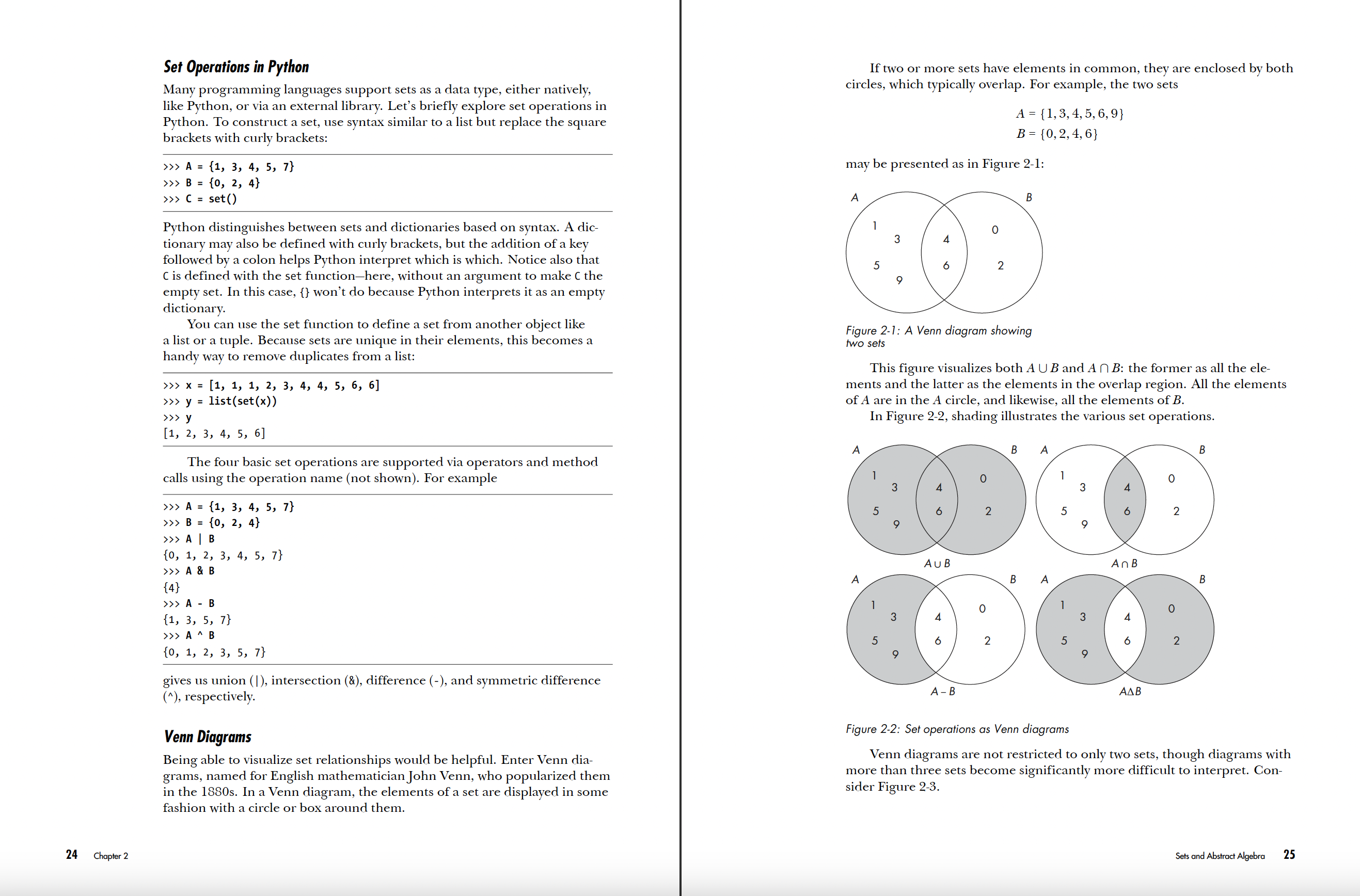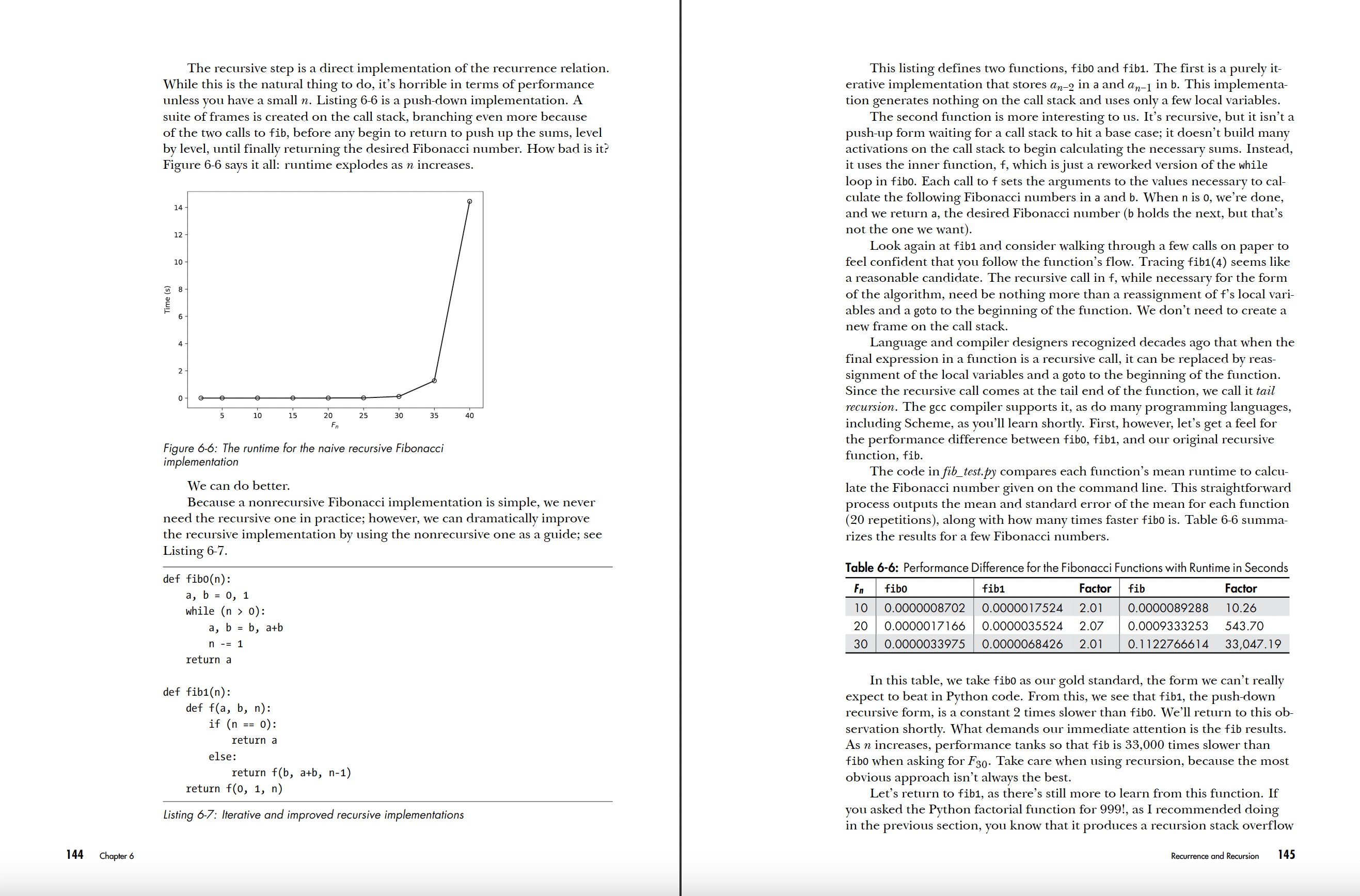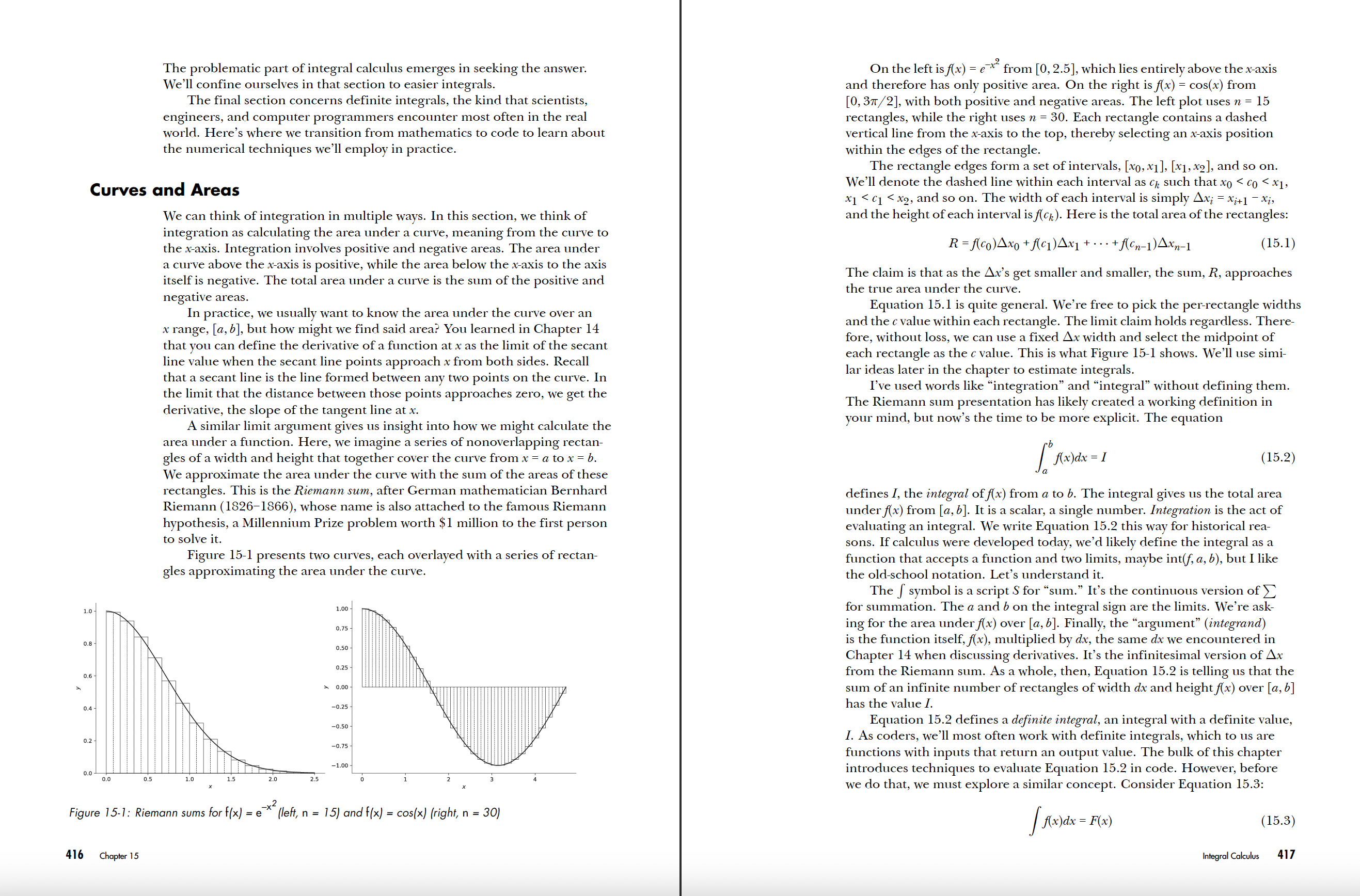Foreword
Acknowledgments
Introduction
Chapter 1. Computers and Numbers
Chapter 2. Sets and Abstract Algebra
Chapter 3. Boolean Algebra
Chapter 4. Functions and Relations
Chapter 5. Induction
Chapter 6. Recurrence and Recursion
Chapter 7. Number Theory
Chapter 8. Counting and Combinatorics
Chapter 9. Graphs
Chapter 10. Trees
Chapter 11. Probability
Chapter 12. Statistics
Chapter 13. Linear Algebra
Chapter 14. Differential Calculus
Chapter 15. Integral Calculus
Chapter 16. Differential Equations
Index
Math for Programming
Look Inside!
Every great programming challenge has mathematical principles at its heart. Whether you’re optimizing search algorithms, building physics engines for games, or training neural networks, success depends on your grasp of core mathematical concepts.
In Math for Programming, you’ll master the essential mathematics that will take you from basic coding to serious software development. You’ll discover how vectors and matrices give you the power to handle complex data, how calculus drives optimization and machine learning, and how graph theory leads to advanced search algorithms.
Through clear explanations and practical examples, you’ll learn to:
- Harness linear algebra to manipulate data with unprecedented efficiency
- Apply calculus concepts to optimize algorithms and drive simulations
- Use probability and statistics to model uncertainty and analyze data
- Master the discrete mathematics that powers modern data structures
- Solve dynamic problems through differential equations
Whether you’re seeking to fill gaps in your mathematical foundation or looking to refresh your understanding of core concepts, Math for Programming will turn complex math into a practical tool you’ll use every day.

